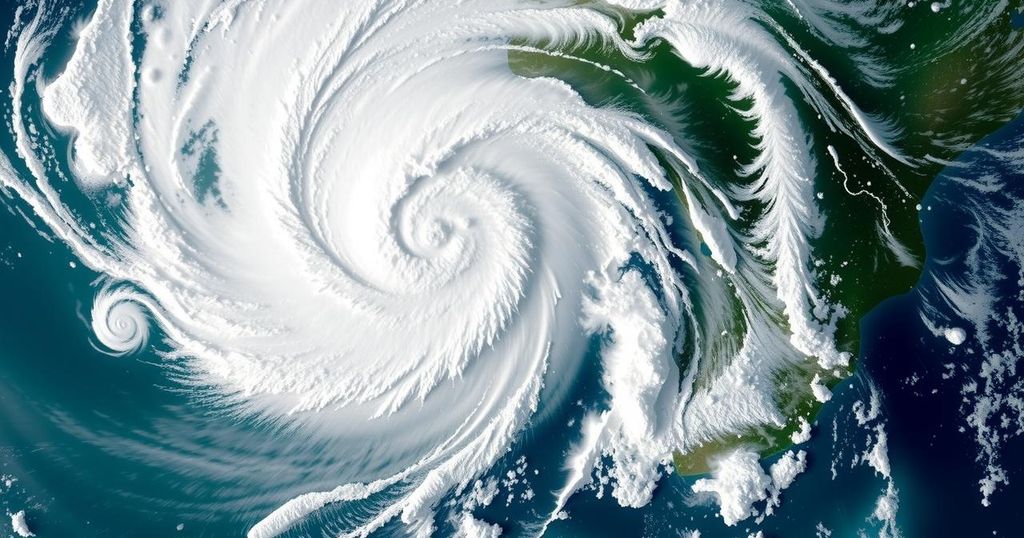Tropical Cyclone Chido Causes Devastation in Mozambique, Resulting in 94 Deaths
Tropical cyclone Chido has devastated Mozambique, killing at least 94 people and affecting over 620,000. The storm’s wind gusts reached 260 km/h, and daily rainfall exceeded 250 mm, particularly impacting Cabo Delgado province. Experts link the cyclone’s severity to climate change. The local government is encouraging citizens to aid the victims as recovery efforts commence.
Tropical cyclone Chido has been wreaking havoc across Africa for the past week, particularly in Mozambique, where the death toll has reached a tragic 94 individuals. Furthermore, the cyclone has impacted approximately 620,000 people, with the hardest hit areas found in Cabo Delgado province. According to the National Emergency Management Agency, wind gusts from the cyclone reached up to 260 kilometers per hour, accompanied by daily rainfall exceeding 250 millimeters.
As rescue and recovery efforts progress, there is a growing concern regarding the implications of climate change as a contributing factor to the cyclone’s intensity. The cyclonic activity has prompted expressions of solidarity from local leadership, including a visit by Daniel Chapo, the presidential candidate of the ruling Frelimo party, who called upon citizens to assist those affected. In comparison to previous cyclonic events, experts suggest that Chido ranks among the most destructive in recent years, trailing only in the scale of devastation caused in the Mayotte archipelago.
Additionally, this natural disaster coincides with other troubling events on the continent, such as an unidentified disease outbreak in Congo, which has cooler flu-like symptoms but far worse consequences. With the combined impacts of climate change and public health crises, it is evident that Mozambique and the surrounding areas are entering a prolonged phase of recovery.
Tropical cyclones are severe weather phenomena characterized by high winds and heavy rainfall, often resulting in significant destruction, loss of life, and displacement of populations. Climate change is believed to exacerbate the frequency and intensity of such events, leading to heightened risks for vulnerable regions in Africa. In the case of cyclone Chido, its catastrophic impact in Mozambique highlights both the immediate humanitarian crises and the broader implications of environmental change that threaten future resilience efforts in the region.
Tropical cyclone Chido has had a devastating impact in Mozambique, resulting in numerous fatalities and affecting hundreds of thousands of individuals. The severity of this disaster not only illustrates the tragic effects of such cyclonic activity but also reflects the ongoing challenges posed by climate change in the region. As recovery efforts are initiated, it is crucial for local populations and leadership to collaborate in providing assistance to those in need and addressing underlying environmental issues.
Original Source: news.novyny.live




Post Comment